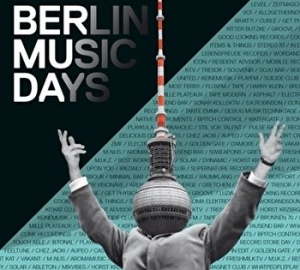24
Futurit: Popular music in its context #Berlín

After the war, Germany was a divided and suffering country. The war destroyed music. Official channels were dominated by schlager – kitsch pop that was supposed to please and placate the masses. If the Germans did not want to make links to the past, they had to start anew. And where there aren’t traditions new and original sounds will arise.
Berlin was a divided city – grey, damp and guarded. It also had its charisma and became an asylum for unconventional people from the whole country. Bowie, Eno, Pop, and Cave came her for inspiration. Germans found their expression in electronic music. It perhaps best captures their thinking and mentality. In the seventies, it was Krautrock, in the nineties techno found its home here. The eighties were the times of the cheeky Neue Deutsche Welle and today Berlin is the spring of brave music unsortable by genre. Why does Berlin attract lunatics and nonconformists?
Why do ideas, which could not break through elsewhere, do well here? Why is everything in Berlin political? You will learn this and more at the musical lecture of Peter Dolník.